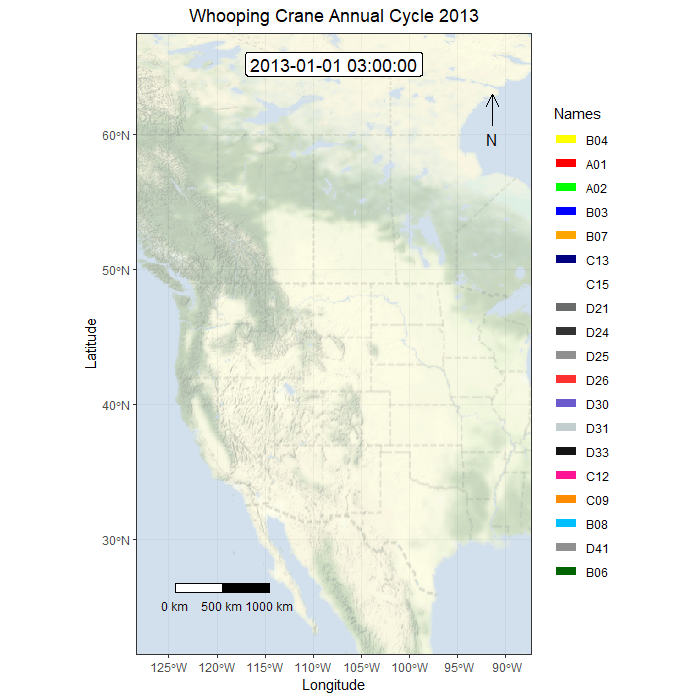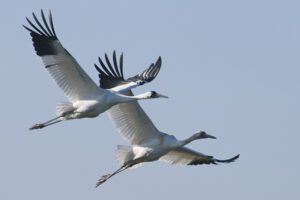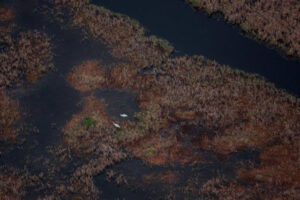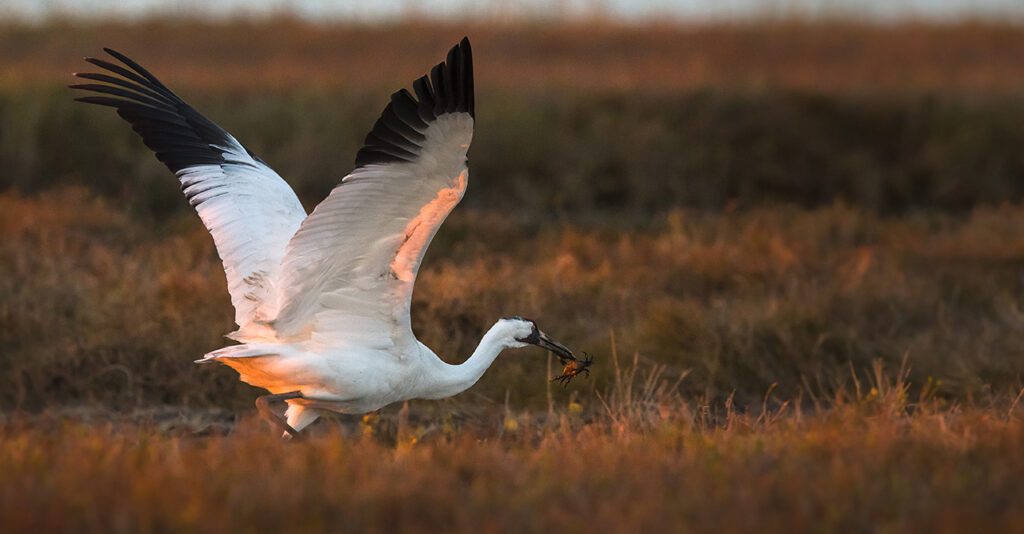Visualizing Whooping Crane Migrations Between Texas and Canada

Follow the annual movements of 19 Whooping Cranes as they journey between their wintering grounds along the Texas Gulf Coast to their breeding areas in Wood Buffalo National Park, Canada.

Whooping Cranes in the Aransas-Wood Buffalo population typically spend their winters on the Texas coast near the Aransas National Wildlife Refuge in Austwell, Texas. Arrival on their wintering grounds begins in October, and the cranes usually stay until mid-March or April. In the spring, the Whooping Cranes travel 2,500 miles to Wood Buffalo National Park in Canada. Although, some unpaired subadult birds spend their summers in the Canadian prairies south of the park. Spring migration takes 29 days on average, while fall migration takes 45 days on average (Pearse et al. 2020a). At the end of summer, the population begins traveling back to Texas, where the annual cycle starts again.
Wood Buffalo National Park

This graphic was created by Matti Bradshaw, Leiden Whooping Crane Biologist, International Crane Foundation, and Katie Fernald, Wetland/Rangeland Ecologist, International Crane Foundation, using data from Pearse et al. 2020b and moveVis software. More information on how this graphic was created can be found here.
Literature:
Aaron T Pearse and others, Heterogeneity in migration strategies of Whooping Cranes, The Condor, Volume 122, Issue 1, 3 February 2020.
Pearse, A.T., Brandt, D.A., Baasch, D.M., Bidwell, M.T., Conkin, J.A., Harner, M.J., Harrell, W., and Metzger, K.L., 2020, Location data for whooping cranes of the Aransas-Wood Buffalo Population, 2009-2018: U.S. Geological Survey data release.
Schwalb-Willmann, J, Remelgado, R, Safi, K, Wegmann, M. moveVis: Animating movement trajectories in synchronicity with static or temporally dynamic environmental data in r. Methods Ecol Evol. 2020; 11: 664– 669.

